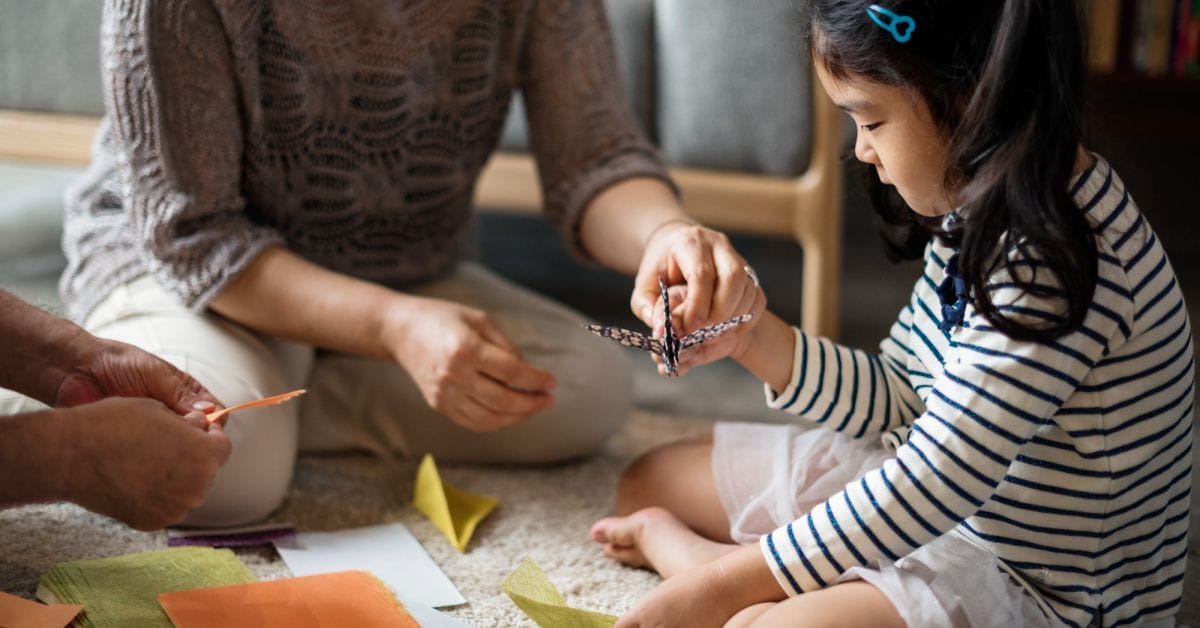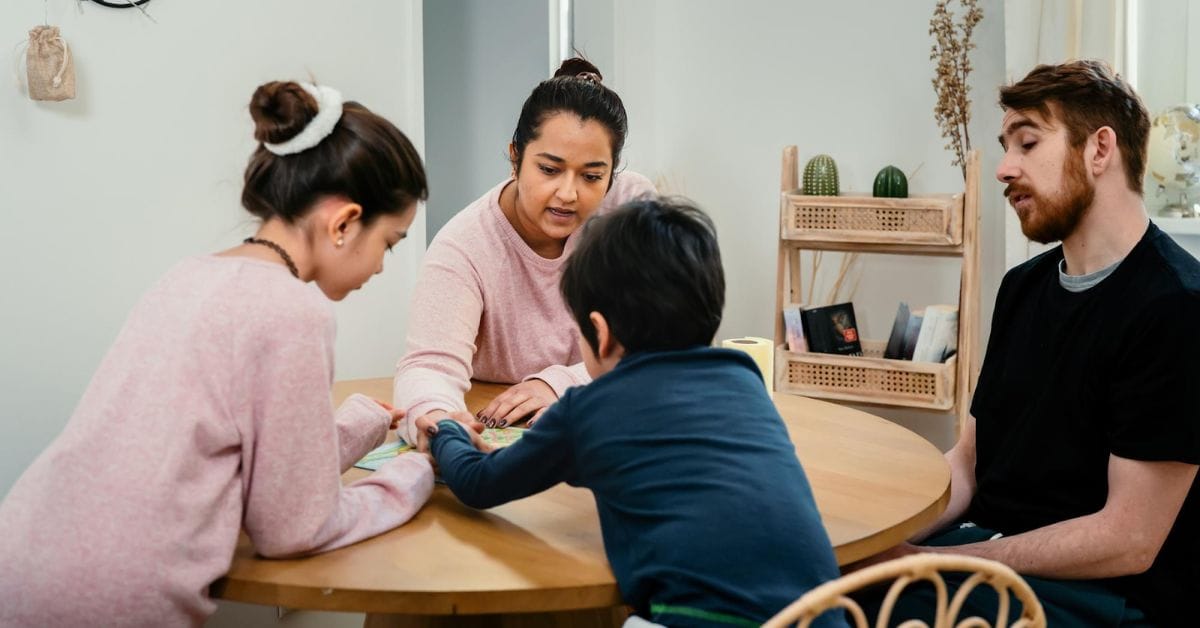Collaborative parenting is a dynamic approach that involves parents working together harmoniously to nurture and support their child’s development. This concept extends beyond the cooperation between mom and dad; it also includes engaging with the child in meaningful ways and collaborating with educational institutions. In this article, we will explore the various benefits of collaborative parenting, discuss the potential consequences of not practicing it, and highlight the importance of partnering with schools that prioritize the well-being of both parents and children.
Understanding Collaborative Parenting
Collaborative parenting can be broadly defined as a cooperative approach where both parents and the child actively participate in the upbringing of their kids. This approach encompasses two key aspects:
Mom and Dad Collaboration
Both parents share responsibilities, communicate effectively, and make joint decisions regarding their child’s upbringing. This partnership is essential for providing a balanced and consistent environment for the child.
Parent-Child Collaboration
Involving the child in decision-making processes and encouraging open communication helps foster a sense of responsibility and self-worth in the child. This aspect emphasizes the importance of treating the child as an active participant in the family unit.
11 Benefits of Collaborative Parenting

As co-workers in God’s service (1 Corinthians 3:9), collaboration and kindness are essential for experiencing God’s wisdom in leading our homes. We thrive as a family when we unite. Collaborative parenting offers numerous advantages that contribute to a child’s overall well-being. Below are the top seven ones:
1. Emotional Stability
When parents collaborate effectively, children experience a stable and secure environment. This emotional stability is crucial for their mental health and development, as it reduces stress and anxiety and promotes a sense of safety. For instance, when both parents communicate openly and support each other in decision-making, children observe a harmonious partnership. This can be as simple as parents agreeing on a consistent bedtime routine, which helps the child feel secure and know what to expect daily.
2. Improved Communication Skills
Children learn effective communication by observing their parents. Collaborative parenting models healthy communication patterns, teaching children to express themselves clearly and listen actively. For example, if parents regularly discuss their feelings and thoughts openly and listen to each other’s perspectives without interrupting, their child is likely to adopt these same communication habits. This could be seen when children calmly talk about their day at school, share their concerns, and listen to feedback from their parents, reflecting the respectful and thoughtful communication they have witnessed at home.
3. Consistent Discipline
Consistency in discipline is vital for a child’s understanding of boundaries and expectations. When parents collaborate, they can establish and enforce rules uniformly, reducing confusion and promoting better behavior. For example, if both parents agree on a specific rule, such as limiting screen time to one hour per day and consistently enforcing this rule together, the child understands and follows the expectation. This uniformity helps avoid mixed messages and ensures that the child knows exactly what is expected of them, leading to more disciplined and predictable behavior.
Also Read: How to Foster Positive Parent-Child Relationships: A 4-Step Guide for Busy Parents
4. Enhanced Problem-Solving Skills
Involving children in family decisions helps them develop critical thinking and problem-solving skills. They learn to consider different perspectives and make informed choices. For instance, if a family is deciding on a vacation destination, parents can discuss the options with their children, asking for their input and explaining the pros and cons of each choice. Through participating in this decision-making process, children can learn how to weigh different factors, think critically about the outcomes, and contribute meaningfully to family decisions.
5. Stronger Parent-Child Bonds
Collaborative parenting strengthens the bond between parents and children. When children feel heard and valued, they are more likely to develop a close and trusting relationship with their parents. For example, when parents involve their child in planning family activities, such as choosing a weekend outing or deciding on a family meal, they demonstrate that the child’s opinions matter. This involvement can be as simple as asking the child which park they’d like to visit or letting them help pick out dinner options. Involving the child in these decisions demonstrates that their opinions are valued, which creates a deeper emotional connection and trust between parents and their child.
6. Academic Success
Research indicates that children with actively engaged parents perform better academically. Collaborative parenting ensures that parents are involved in their child’s education, providing support and encouragement. For instance, if parents regularly check in with their children about their homework and engage in discussions about school projects, the child receives consistent support and motivation. This involvement might include setting up a dedicated study area, helping with organization, or discussing academic goals together. Such active participation helps reinforce the importance of education and supports the child’s academic achievements.
7. Better Social Skills
Children who grew up in a collaborative parenting environment tend to have better social skills. They learn empathy, cooperation, and conflict resolution, which are essential for building healthy relationships. By observing parents who communicate respectfully and work together, children learn strategies for solving interpersonal problems and considering others’ needs. These skills help them interact well with peers and build positive friendships.
8. Enhanced Compromise and Flexibility
Collaborative parenting requires a willingness to compromise, which teaches children flexibility and how to balance their own needs with the needs of others. For example, if one parent prefers a strict bedtime while the other allows flexibility on weekends, finding a middle ground teaches children that compromise can create positive outcomes. This way of parenting helps children learn how to navigate different perspectives and compromises, skills they need for relationships throughout their lives.
9. Better Understanding of Boundaries and Expectations
Through collaborative parenting, children develop a clear understanding of household rules and expectations. When both parents communicate openly about boundaries, it reduces ambiguity and confusion for the child. For instance, if both parents agree on guidelines for using electronic devices, children know the boundaries and are more likely to respect them. This consistency is particularly beneficial for understanding limits and practicing self-discipline, which can positively influence the child’s behavior and decision-making.
10. Building a Sense of Responsibility and Accountability
Collaborative parenting encourages children to take responsibility for their actions. By involving children in family discussions and giving them age-appropriate responsibilities, they learn accountability. For example, a family might assign weekly chores to each member and check in during family meetings to ensure everyone contributes. This parenting process not only fosters accountability but also builds a sense of shared responsibility within the family.
11. Nurturing a Supportive and Loving Environment
A collaborative parenting approach creates a nurturing environment where children feel loved and supported. When children witness their parents working together harmoniously, they feel secure and valued. This supportive atmosphere helps protect their mental health, as children feel comfortable approaching their parents during difficult times. Additionally, by demonstrating kindness, patience, and respect in their interactions, parents reinforce these values in their child, fostering a compassionate family dynamic that encourages growth and positive relationships.
Potential Outcomes of Not Practicing Collaborative Parenting

Collaborative parenting is an approach where both parents actively work together to raise their children, regardless of whether they live together or apart. It involves consistent communication, shared responsibilities, and a unified approach to parenting. The absence of collaborative parenting can lead to several adverse effects on a child’s well-being, impacting their emotional, academic, and social development.
Also Read: 5 Tips for Mindful Parenting in the Digital Age: Finding Balance for Your Kids
1. Emotional Distress
When parents do not practice collaborative parenting, inconsistent parenting styles and lack of communication can create an unstable environment for children. This instability can lead to emotional distress, as children may feel torn between conflicting parental expectations or uncertain about their role within the family. Without a stable and supportive environment, children may experience anxiety, depression, or low self-esteem.
2. Poor Academic Performance
Children thrive academically when they have parental involvement and support. However, when parents do not collaborate, children may struggle to succeed in school. A lack of collaboration can lead to missed opportunities for academic guidance and encouragement, leaving children without the support they need to excel. Additionally, without a unified approach to homework and study habits, children may lack the structure needed to develop effective study skills. Collaborative parenting ensures that both parents are on the same page regarding academic expectations, providing children with the encouragement and resources they need to succeed in school.
3. Behavioral Problems
Inconsistent discipline and conflicting messages from parents can confuse children and contribute to behavioral problems. Without clear and consistent boundaries, children may act out or become defiant as they test limits and seek attention. Collaborative parenting ensures that both parents agree on disciplinary strategies, providing children with a clear understanding of acceptable behavior.
4. Weakened Parent-Child Relationship
A lack of collaboration between parents can strain the parent-child relationship, leaving children feeling neglected or undervalued. When parents fail to communicate effectively and share parenting responsibilities, children may perceive this as a lack of interest or concern for their well-being. Also, children may struggle to trust their parents or seek emotional support from them, resulting in a strained relationship. Collaborative parenting fosters open communication and emotional connection, strengthening the parent-child bond and promoting a nurturing and supportive family environment.
5. Social Challenges
Children from non-collaborative parenting backgrounds may struggle with social interactions and face challenges in developing healthy relationships. The lack of consistent parenting can hinder the development of essential social skills, such as empathy, communication, and conflict resolution. Without a collaborative approach, children may struggle to navigate social situations and form meaningful connections with peers.
Also Read: 6 Christian Friendship Values Parents Should Teach Their Children
The Importance of Collaborating with the Right School
Collaborative parenting extends beyond the home environment. Engaging with international schools such as Sekolah Pelita Harapan (SPH) that prioritize the well-being of both parents and children is crucial for a child’s holistic development.
Schools that prioritize parental engagement provide comprehensive support for students by fostering strong home-school connections and collaborating with parents to meet academic, emotional, and social needs. This partnership enhances children’s academic performance, as parents can reinforce learning at home while teachers offer valuable insights. Consistent collaboration ensures children receive uniform messages about values, behavior, and expectations, which boosts their confidence in navigating their educational journey.
Engaged parents can identify and address potential issues early, preventing minor problems from escalating. Additionally, schools that promote parental involvement build a sense of community, creating a supportive and inclusive environment for children. Emphasizing shared responsibility, collaborative parenting with schools encourages parents and educators to work together towards common goals, ensuring the best possible outcomes for the child’s well-being.
Collaborative parenting is a powerful approach that significantly enhances a child’s well-being. By working together, parents can provide a stable, supportive, and nurturing environment that fosters emotional, academic, and social growth. Additionally, partnering with schools that prioritize parental engagement further amplifies these benefits, ensuring a holistic and well-rounded development for the child. Embracing collaborative parenting is not just a choice but a commitment to the child’s future, paving the way for a healthier, happier, and more successful life.
At SPH, we are committed to fostering this collaborative environment. Our International Curriculum is designed to engage parents as active participants in their child’s education, ensuring that every student receives the holistic support they need to thrive academically and personally. Learn more about how our IB School Program prioritizes parental engagement and holistic support for every student today!









